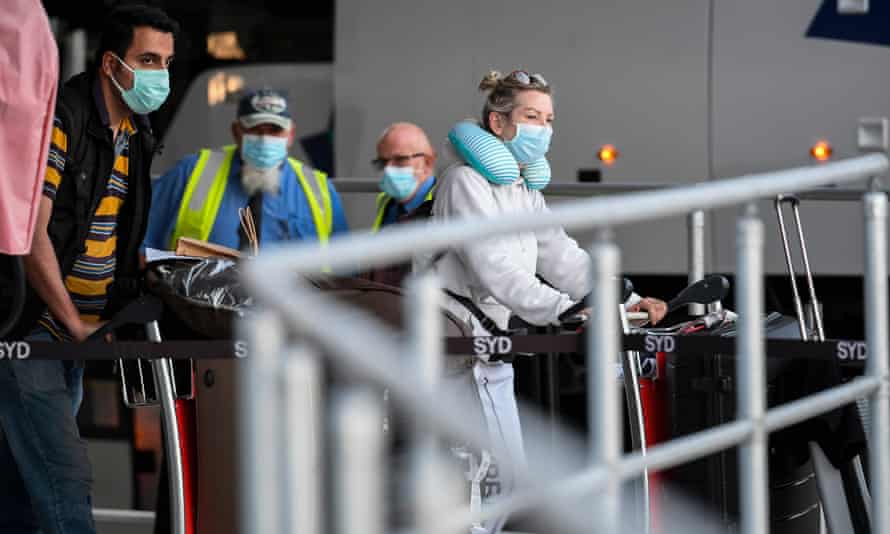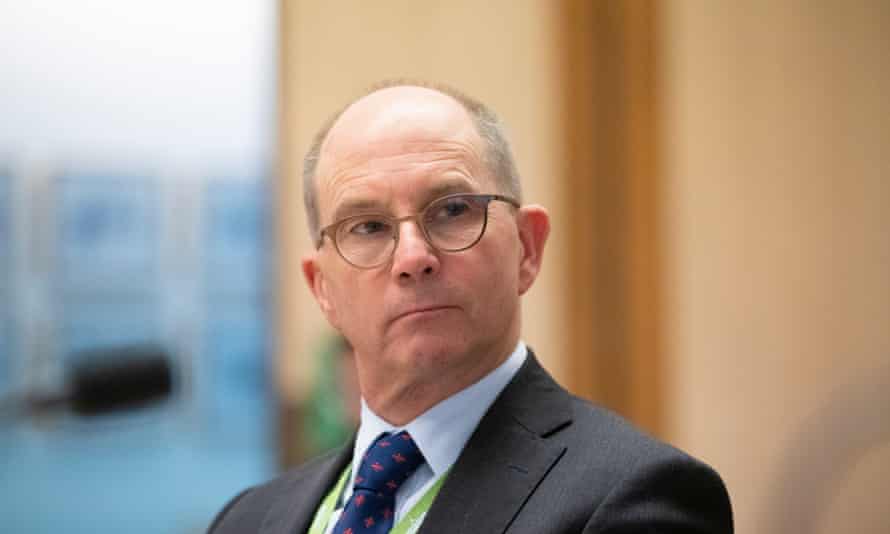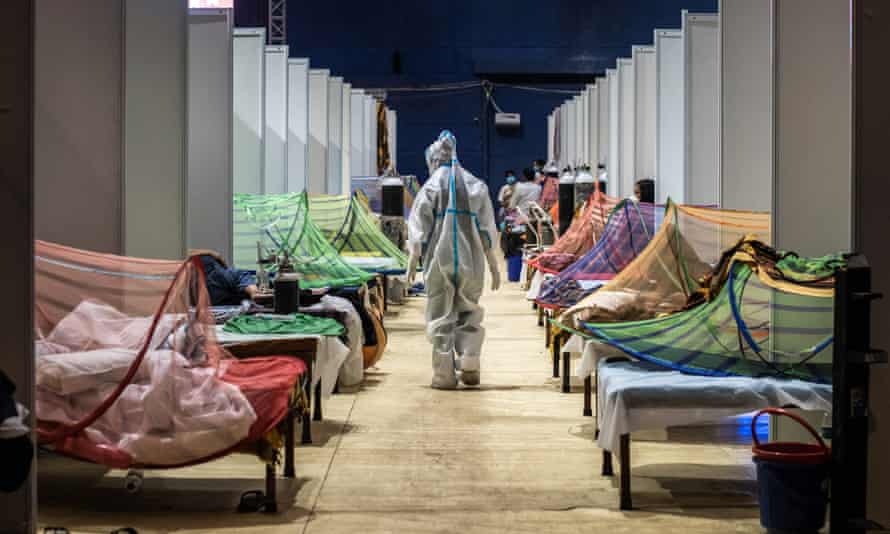At the weekend, the federal health minister, Greg Hunt, announced the government would bar people – including citizens and permanent residents – from coming to Australia from India.
The decision prompted a storm of criticism, including from the Australian Human Rights Commission, as Australians came to grips with an extreme use of a power most didn’t know existed.
So how did the ban come about, is it justified by medical advice, and could it be challenged legally?
What is the India travel ban?
On 27 April, the Australian government announced it was suspending all travel from India until 15 May, due to the increase in Covid cases in hotel quarantine from people arriving from India.
Despite the ban, a flight from Doha arrived in Australia later in the week carrying passengers who had transited through Qatar from India, including cricketers Adam Zampa and Kane Richardson.
Following a national security committee of cabinet meeting, on Friday the government alerted national cabinet to its plan and then, at 11.50pm, made a determination to close the loophole.

What does the determination do?
The determination states that a person cannot fly to Australia if they have been in India in the previous 14 days.
There are a few exemptions for health workers, crew, freight workers, diplomats and defence force personnel. The determination expires on 15 May but is not disallowable before then.
How can they do that?
The determination is made under section 477 of the Biosecurity Act, which gives the federal health minister, Greg Hunt, extraordinary powers in the event of “a human biosecurity emergency period”.
Determinations are subject to a range of safeguards. They must be effective, appropriate and adapted to achieve their purpose; no more restrictive or intrusive than is required in the circumstances; and apply only as long as necessary.
What are the penalties?
Section 479 of the Biosecurity Act contains maximum penalties of five years imprisonment or $66,600, or both, for breaching a determination.
On Monday, Hunt noted the act passed in 2015 with bipartisan support, and the penalties are contained in the act not his determination.
What is the medical case for the ban?
In advice published on Monday, the chief medical officer, Prof Paul Kelly, said India had been identified a “high-risk” country as it had 18.3 million positive Covid-19 cases, including 379,257 new infections and 3,645 deaths in the week to 29 April 2021.
He said:
Following the introduction of pre-departure testing and changes to international arrival caps in late January 2021, overseas acquired cases among air arrivals fell from approximately 1.0% to approximately 0.5% in February 2021. This proportion has since increased, with approximately 1.8% of recent air arrivals being identified as cases (19-25 April 2021). Since late March 2021, there has been a sharp increase in the number and proportion of overseas acquired cases that were reported as acquiring their infection in India; over 50% of overseas acquired cases since mid-April 2021 were acquired in India.
Despite Hunt describing Australia’s hotel quarantine system as the best in the world, Kelly advised that Covid leaking “presents a significant risk to the Australian community”.
Epidemiologists have questioned the ban, noting that India has fewer coronavirus cases per capita than either the United States or the United Kingdom during their respective Covid peaks.
But Kelly advised of “emerging risks” with respect to India, including the rapid increase and likely under-reporting of cases; high rates of Covid-19 detected from arrivals from India; and a high proportion of variants of concern.

In ABC interviews, Kelly explained the US and UK experienced their peaks earlier in the pandemic and since then Australia had set a limit of a 2% positivity rate in hotel quarantine, which is imperilled by the outbreak in India.
Hunt told reporters on Monday that the number of people in hotel quarantine from India with Covid had increased from 14 in February, to 38 in March, to 210 in April.
“In Howard Springs alone we saw a seven-fold increase in cases,” he said. “Across the country, we saw a 1,500% increase in cases.”
Is the ban legal?
There are two ways the travel ban could be challenged: first, on the basis the determination is unlawful because it breaches safeguards in section 477 of the Biosecurity Act; or secondly, that it is unconstitutional.
Both Melbourne University’s Prof Cheryl Saunders and Sydney University’s Prof Anne Twomey agree the former is the better argument.
Saunders said a plaintiff could argue the ban was disproportionate and therefore failed the test of being “no more restrictive or intrusive than is required in the circumstances”.
“There is also a question about whether the legislation or the determination is apt as it applies to citizens,” Saunders told Guardian Australia.
She said a plaintiff could argue the law needed to be more explicit if it was intended to allow Australians to be barred from entering Australia and the “pretty extreme” criminal penalties could support the view it didn’t.
Twomey said any challenge was most likely to turn on whether the health minister could “reasonably be satisfied” of the requirements – including that the ban was effective, appropriate and adapted to its purpose and no more intrusive than necessary.
Twomey said a constitutional case would have to clear two hurdles: first, establishing that citizens have an implied right to enter Australia; and secondly, whether that right was absolute or could be qualified to protect public health.

That would be “difficult”, especially given the “cautious” approach on public health the court took in upholding the Western Australian interstate travel ban, she said.
Some legal commentators have suggested it is also arguable the commonwealth has no constitutional head of power for the travel ban, although Twomey suggested the quarantine, migration and nationhood heads of power likely supported it.
Did the government get legal advice?
The health department secretary, Prof Brendan Murphy, told Senate estimates on Monday the health department did receive legal advice.
Hunt referred questions about legal advice to the attorney general, declining to say if the solicitor general had provided it and whether the government would release it.
“I received all of my advice in relation to this on Friday evening and responded immediately,” Hunt told reporters. He said the government was of the “strong, clear, absolute belief” the ban was legal.
Is this unprecedented?
In his advice, Kelly noted the travel ban would be “the first time that such a determination has been used to prevent Australian citizens and permanent residents entering Australia”.
While not necessarily contradicting him on that point, Hunt had a very different emphasis at his press conference on Monday – noting the government had banned flights from China earlier in the pandemic and more recently from Papua New Guinea.
Hunt noted the Biosecurity Act had been used to protect remote communities and introduce pre-departure testing and international mask requirements, restrictions on cruise vessels, and the outbound travel ban. More recently, a determination was used to ban Australians from onward travel from New Zealand when the travel bubble opened.
Hunt said nobody had been prosecuted in Australia “to the best of my knowledge” under the measures.
Twomey said the determination was not “completely unprecedented” as the federal government had powers to issue temporary exclusion orders to prevent terrorist suspects from returning to Australia even if they were Australian citizens.
This content first appear on the guardian
